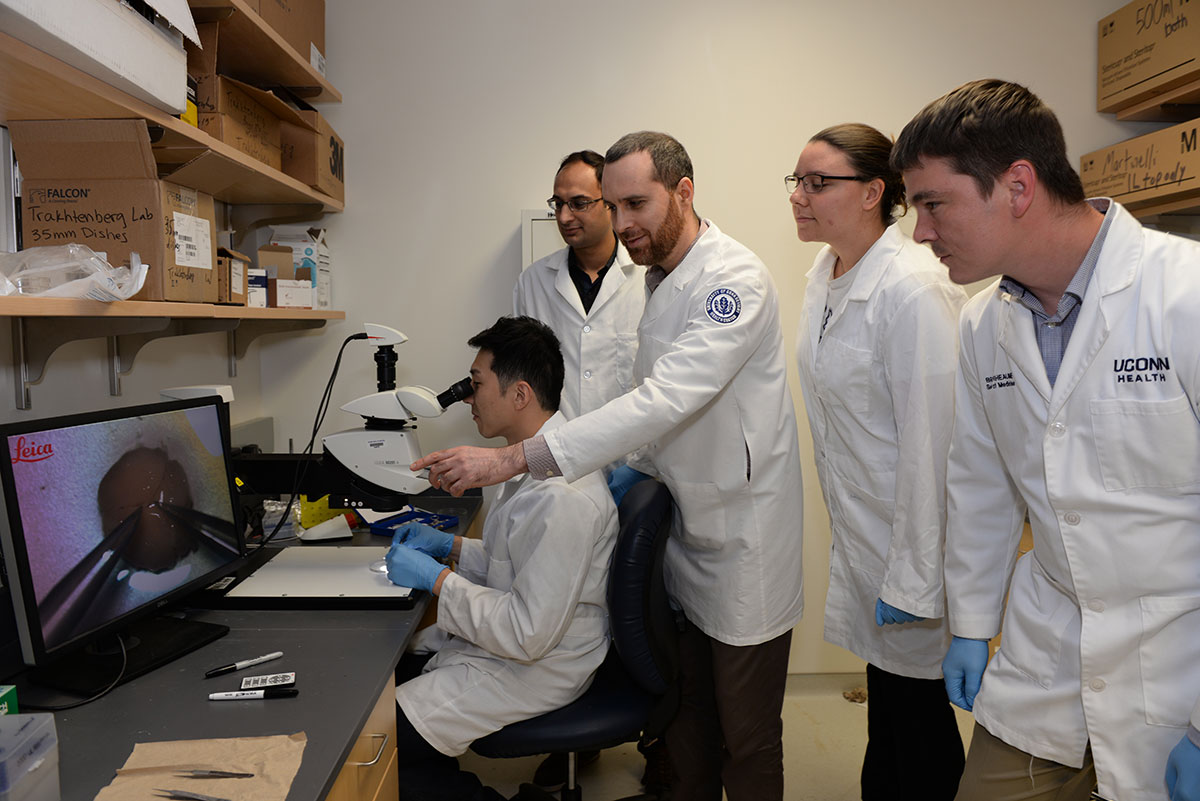Ephraim Trakhtenberg, assistant professor of neuroscience, won an Interstellar Initiative honor from the New York Academy of Sciences and the Japan Agency for Medical Research and Development. Most recently he was awarded “First Place – Outstanding Early Career Investigator Team Presentation in Neurocience.” In March he and collaborator Kumiko Hayashi of Tohoku University in Japan won first place for a research solution proposal in the field of neuroscience. Now only in his second year on the UConn Health faculty, Trakhtenberg already has a research grant by the BrightFocus Foundation and a grant from the Connecticut Institute for the Brain and Cognitive Sciences, in collaboration with Steven Crocker, associate professor of neuroscience, to his credit.He mentors undergraduates, medical students, master’s students, Ph.D. students, and postdoctoral fellows in his lab, which focuses on regeneration of central nervous system circuits that have been damaged.

Dr. Augustus Mazzocca, director of the UConn Musculoskeletal Institute, has been presented with the 2017 Champion of Yes Prestigious Excellence in Medicine Award by the Arthritis Foundation.
A study of a surgical technique to restore shoulder joint stability known as the “J-bone graft” conducted at UConn Health under the leadership of then sports medicine research fellow Dr. Leo Pauzenberger has been honored by the world’s largest arthroscopy society. The Society for Arthroscopy and Joint Surgery presented its biannual Medi Award for exceptional research on restoration of joint function to Pauzenberger at its annual congress in Munich earlier this month. Collaborating with UConn Health scientists during his time as a sports medicine research fellow with Mozzacca in 2015 and 2016, Pauzenberger was lead author of the article, which was published in the American Journal of Sports Medicine.

Dr. Ivo Kalajzic, an associate professor of reconstructive sciences, is principal investigator of a federal research grant that focuses on understanding the biological processes involved in mending broken bones (fractures). He is studying the role of the Notch signaling pathway in an effort to identify components that could be manipulated to accelerate fracture healing. Kalajzic’s lab will further explore the role of Notch receptors in fracture repair.



